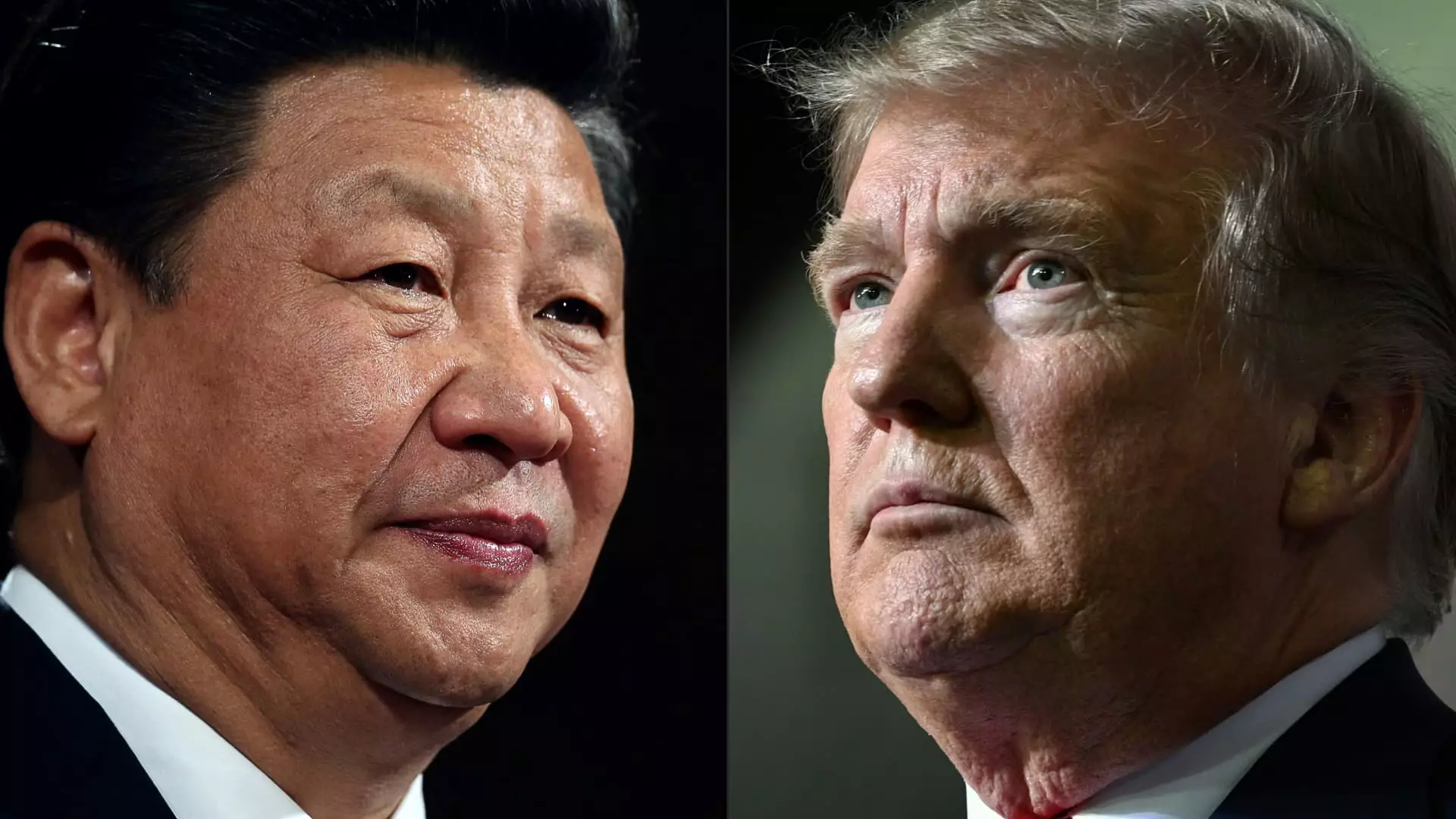In a recent statement aboard Air Force One, former U.S. President Donald Trump expressed optimism regarding a forthcoming visit by Chinese President Xi Jinping to the United States. Although Trump refrained from providing any specific timeline, he underscored the potential for a renewed trade agreement between the two nations. This emphasis on dialogue indicates an underlying recognition of the importance of face-to-face interactions in international diplomacy, particularly between the U.S. and China, two major global players whose economies and policies heavily influence international markets.
The essence of Trump’s remarks highlights a crucial tension: the ongoing trade tariff issues that have left both nations at a standstill. A meeting between Trump and Xi is seen as pivotal, possibly paving the way for the reduction or elimination of tariffs that have created barriers for businesses and strained consumer relationships in both countries. Trump’s assertion that “it’s possible” to strike a new trade deal is reflective of his administration’s overall approach, prioritizing negotiation over confrontation in hopes of fostering a more cooperative economic environment.
Historically, Xi’s last visit to the U.S. in November 2023, which occurred during Biden’s presidency, was marked by significant engagements aimed at resuming military dialogue and addressing fentanyl production. Such meetings establish a context for future interactions, wherein leaders can reassess previous agreements and adapt to evolving geopolitical landscapes. Notably, Trump’s references to past dialogues with Xi about various issues, including technological matters like TikTok and contentious topics such as trade practices and Taiwan, illustrate the complexity and multifaceted nature of U.S.-China relations.
Interestingly, China’s foreign ministry has opted for a non-confrontational approach, sidestepping Trump’s remarks by referring back to previously scheduled communications. This reaction underscores a strategic nuance in diplomatic exchanges. By refraining from direct engagement with Trump’s statements, China retains a veneer of stability and control over its diplomatic narrative, signaling that while it may be open to dialogue, it is also cautious about how these interactions are framed in public discourse.
Trump’s remarks extend beyond commerce, touching upon his opinion on handling the ongoing war in Ukraine, asserting that a deal could potentially be brokered with Russia to cease hostilities. This assertion indicates a broader ambition to restore U.S. influence in global geopolitics, emphasizing negotiations as an avenue for conflict resolution. However, the complexity of achieving such agreements—especially with adversarial states— underscores the herculean task that lies ahead.
Trump’s statements serve as a reminder of the intricate and often tumultuous nature of international relations. The relationship between the U.S. and China is laden with challenges, yet it also paves the way for potential breakthroughs contingent on diplomatic engagement. As global leaders navigate these uncertain waters, the interplay of negotiation, policy, and interpersonal communication will remain crucial in shaping the future of international relations.


Leave a Reply